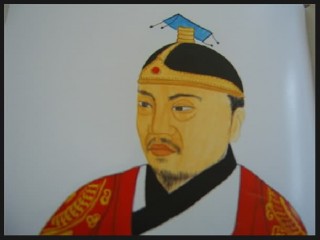
Gwangjong Of Goryeo biography
Date of birth : -
Date of death : -
Birthplace : Korea
Nationality : Korean
Category : Historian personalities
Last modified : 2011-10-12
Credited as : , Han Woo-keun, Buddhist activities
Kwangjong (925-975) was the fourth monarch of Koryó, a medieval Korean kingdom. Although he was often given to suspicion and slander, he is generally regarded as the "most independent Koryó ruler,"who worked zealously to strengthen royal authority.
Kwangjong was the third son of Wang Kón, the founder of the dynasty, and succeeded Chóngjong, his elder brother. To gain more power, he sought to weaken the power and influence of founding generals, the core of the military group, and of local chiefs.
In order to secure national revenue, Kwangjong regularized tax rates in 949, especially local taxes. More important was his bitterly opposed serf emancipation act of 956. Its purpose was to liberate slaves and serfs owned by military men and local chiefs and to redeem those who had been originally abducted from the "commoners" class. And in order to alleviate the suffering of the poor and the sick, he set up relief centers in the capital (963).
In 958, at the suggestion of an immigrant from China, Kwangjong initiated the civil service examination system, another move to weaken the military power and to solidify civilian bureaucracy as the administrative organ. Two years later (960), the system and color of official robes were established. The engagement of men of talent who were without birth or money, as well as immigrant Chinese, was a deadly blow to the office holding of hereditary "meritorious subjects" with local backgrounds. Upon Kwangjong's death, his policy was abandoned, and a new group of Silla refugees came to dominate the central administration.
Kwangjong's foreign policy was not isolationist. He maintained friendly relations with the Later Chou for 7 years (953-960) and then with the new dynasty of Sung. He adopted an active defense policy toward the Khitan and Jürchen and constructed four military garrisons in the northeast and eight on the northwest borders. A devout Buddhist, he supported such Buddhist activities as the construction of new monasteries, the casting of Buddhist images, and the engagement of able monks as his advisers.
At his death in 975, Kwangjong left as his most important legacy the tradition of the supremacy of the civilian branch of government, a policy that, years later, contributed to the revolts of the military (1170) that ushered in the period of military rule in Koryó history.
A summary of Kwangjong's reign is in Han Woo-keun, The History of Korea (1970). □
















